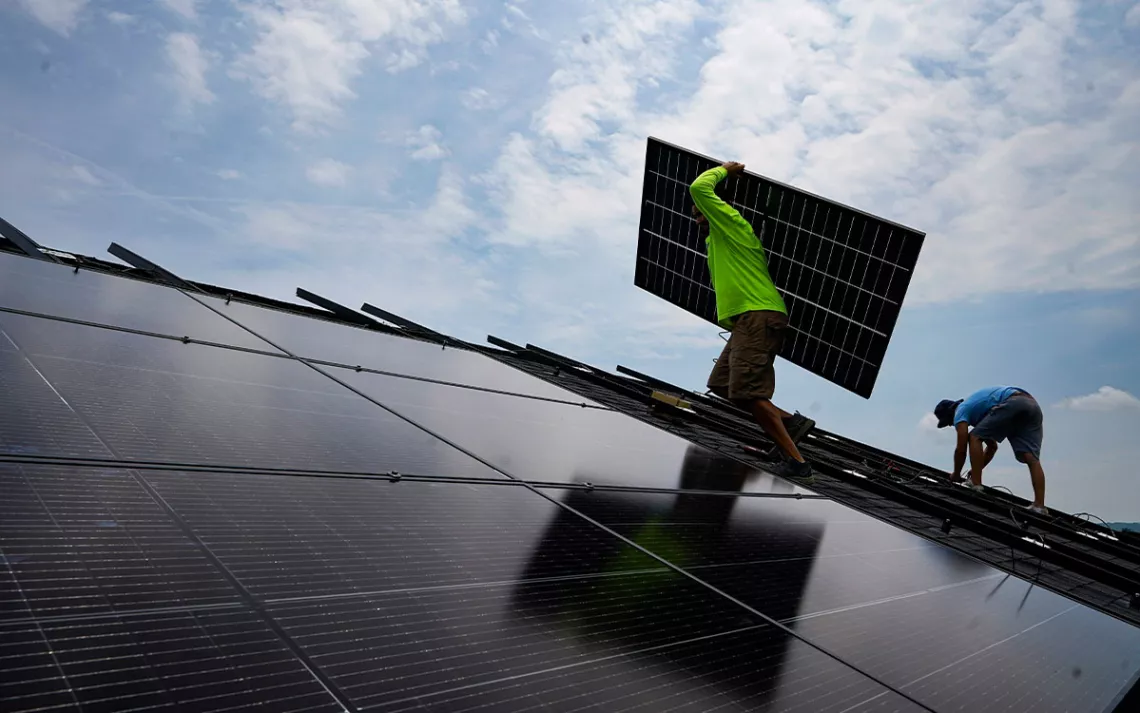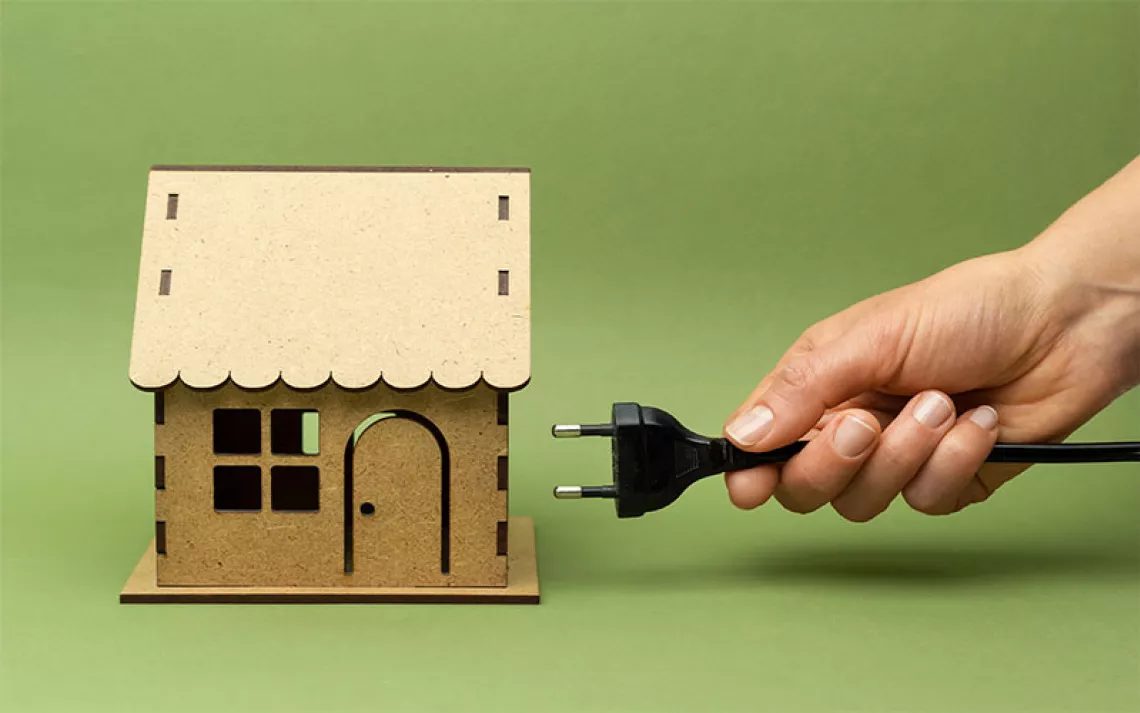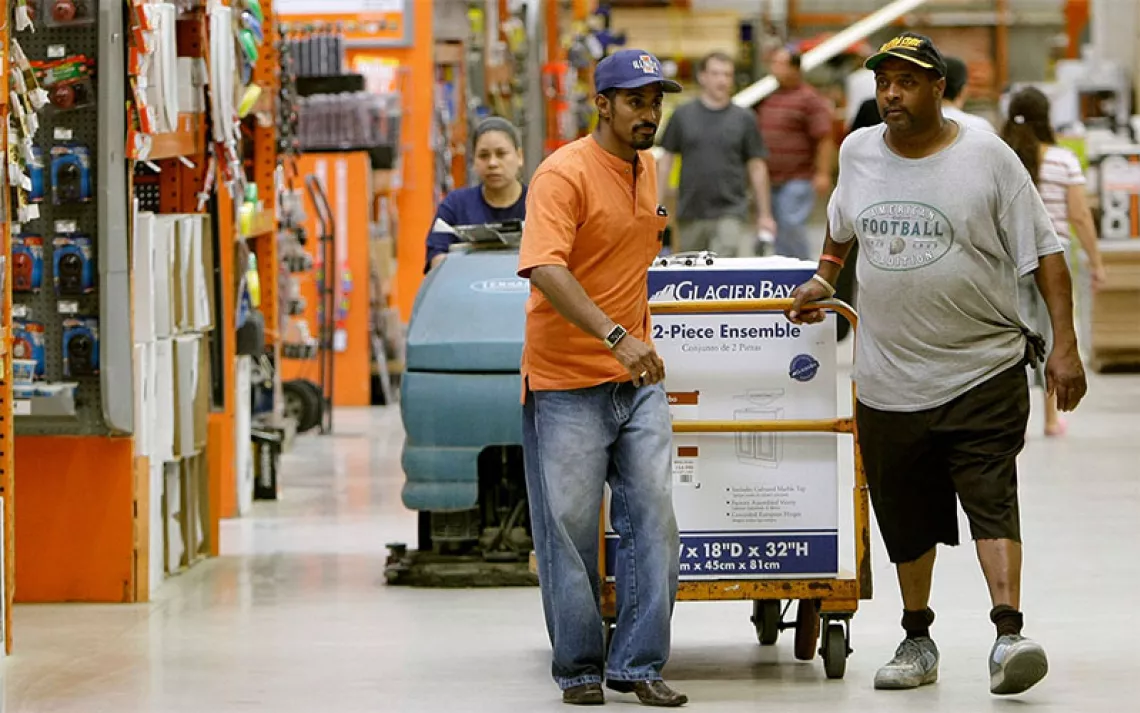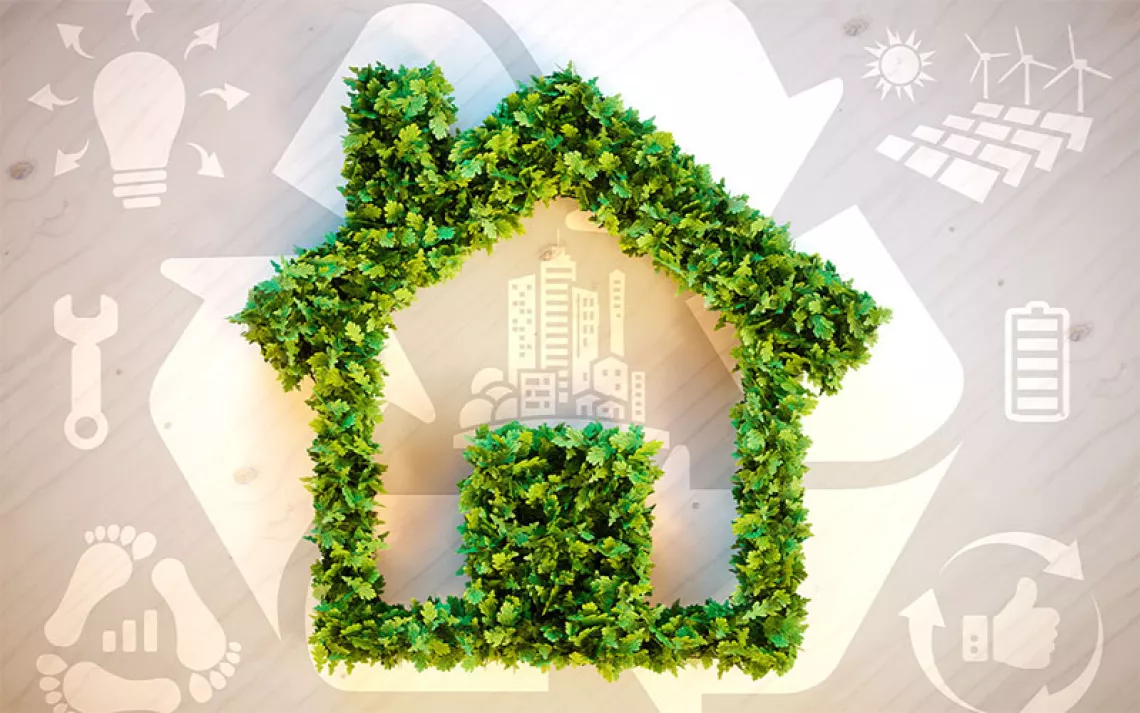The IRA Is Still Our Biggest Step Toward a Brighter Future for Our Children
Here's why

Photo by Michael Conroy/AP File
Distributed by Trice Edney Newswire
I often think about a factory hallway in Dalton, Georgia, that is filled with pictures drawn by children. It is a reminder of what can be, what will be, thanks to the historic Inflation Reduction Act (IRA), which celebrates its second anniversary this month.
The drawings capture how these children see their parents who work at this solar manufacturing plant. There are pictures of beautiful sunny days, of the earth with pristine water. Of their parents saving the world. These children see their parents as superheroes. As I remember these pictures, I wonder: How can anyone not be inspired by these children to fight every day for a better, livable future? For more clean energy jobs, in big cities and rural communities across the country, that will power our economy—and our homes—for generations to come?
Around this anniversary, the news has been filled with reflection on what the IRA has achieved and what still needs to be done. It is—as it should be—a major focal point at the Democratic National Convention happening now in Chicago.
You do not have to look hard to find examples of its success. More than 334,000 new clean energy jobs have been created across the country. More than 3 million US households have collectively saved over $8 billion on upgrades that will save them money and make their homes more energy efficient. In Illinois alone, for example, nearly 140,000 residents claimed more than $260 million in tax credits on their 2023 tax returns for installing solar or making other energy-efficiency improvements on their homes.
One fact should loom larger than most: The IRA is still this nation’s biggest single step ever toward securing a healthy and livable planet for all. No other single piece of legislation has done more to address our climate goals and support the clean energy revolution already underway. Through the Climate Pollution Reduction Grants program, the IRA is projected to reduce greenhouse gas pollution by as much as 971 million metric tons of carbon dioxide equivalent by 2050. That’s equivalent to the emissions from about 5 million homes’ energy use every year for more than 25 years.
Need a reminder of the urgency and necessity of this investment in combating the climate crisis? Just turn on the news. Or step outside. We are experiencing the hottest summer on record … in the hottest year on record. Supercharged storms and wildfires from all that heat are impacting more and more Americans. Hurricane Ernesto is just the latest storm to batter homes and businesses and leave hundreds of thousands of Americans without power. With so many people hurting and at risk, the IRA remains one of our most powerful tools to mitigate climate change’s harm. We must continue to learn from our experience implementing it, fill gaps where we see them, and double down on our efforts to protect people, places, and the planet we call home. And we must remember that throwing everything we have at combating the climate crisis is also the way America wins in the next economy.
In the decades since the North American Free Trade Agreement (NAFTA), the shipping of US jobs overseas has helped destroy towns and cities across America. Now, the IRA is fueling a manufacturing rebirth that is creating good-paying jobs while bringing our energy economy into the 21st century.
Plans to build a new solar cell factory near Minneapolis, Minnesota, are currently underway. This factory will create more clean energy jobs in the Midwest while addressing the need for more American-made solar cells. The solar company Heliene, which co-owns the project, publicly credits the IRA’s tax credits for inspiring its decision to invest in US solar manufacturing.
Just an hour drive away from Minneapolis is the town of Becker. It is home to one of the largest coal-burning power plants in the country. Yet Becker will soon be known for something else: being a national leader in the transition to clean, renewable energy. Xcel Energy is fully retiring the Sherco coal-burning power plant by 2030. Literally within eyesight of the old plant, they are building what will become the fifth-largest solar project in the United States. Taking advantage of new and extended tax credits and grant programs, the Sherco solar and energy storage facility will bring 1.8 million solar panels online in 2026. It will employ hundreds of workers—many of them moving over from the coal plant—and power more than 150,000 Midwest homes each year.
The IRA was always designed to set us up for long-term economic success. Part of how it achieves this is by putting money back into Americans’ pockets and ensuring that no community is left out of the transition to cleaner, safer, and more affordable clean energy. Tax credits and rebates are lowering the cost of home improvements and electric vehicles that themselves will save consumers money. The Solar for All program is awarding $7 billion to projects across the country that will help over 900,000 low-income households benefit from solar energy.
We owe it to ourselves and to our kids to build on this momentum. On this IRA anniversary, I think of those children in Dalton and children in communities big and small across the country. I am excited for all the pictures to come if we get this right.
 The Magazine of The Sierra Club
The Magazine of The Sierra Club



